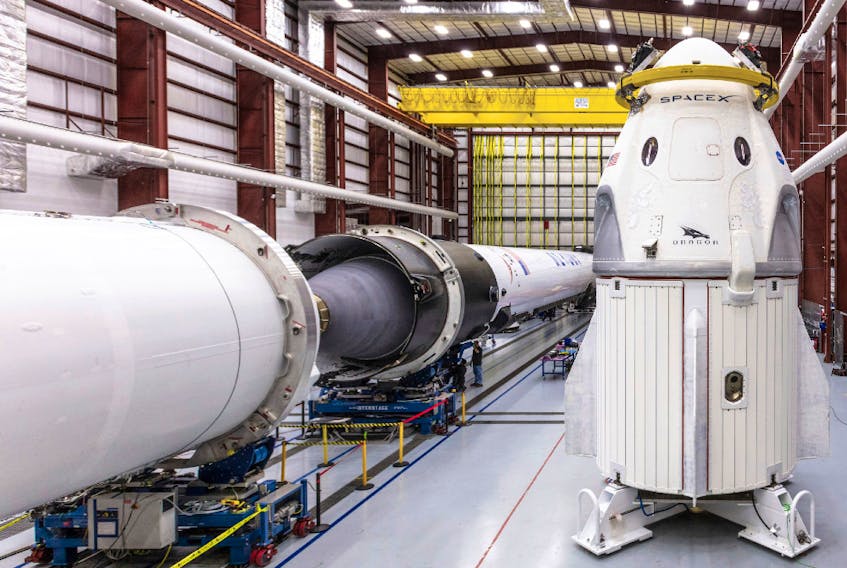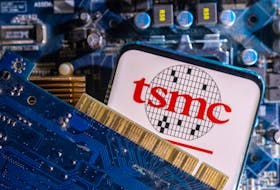Canada’s space agency says it still has confidence in the rocket selected to launch the country’s premier satellite system in late May even though the Pentagon is now investigating whether the spacecraft was properly certified.
The SpaceX Falcon 9 rocket has been selected to launch the Radarsat Constellation Mission or RCM, Canada’s new $1-billion surveillance system that consists of three satellites.
The likelihood of a launch failure is considered to be low but if that happened it would take four years for Canada to rebuild the radarsat satellites, according to documents obtained by Postmedia.
That Canadian Space Agency assessment, however, was made in 2018, before the U.S. launched an investigation into the SpaceX rockets.
The Office of the Department of Defense Inspector General announced in February it had started an investigation into whether the U.S. Air Force properly certified SpaceX’s Falcon rockets for national security launches. Few other details have been made available.
SpaceX has already conducted a number of successful launches for the U.S. military.
But in June 2015 one of its Falcon 9 rockets blew up shortly after lift-off.
It is unclear whether the Pentagon investigation will cause a delay for the launch of the Canadian satellites but the Canadian Space Agency has expressed confidence in SpaceX.
“The use of a SpaceX Falcon 9 launcher meets the reliability and security requirements set out by the Government of Canada for RCM,” said Canadian Space Agency spokesperson Audrey Barbier.
She noted that SpaceX would have more information on the investigation.
At this point the RCM is to be launched sometime between May 16 and May 22. The exact date will be determined closer to the launch, according to the Canadian Space Agency.
SpaceX officials have said they continue to work closely with the Canadian Space Agency and with MDA, the builder of RCM.
SpaceX considers the probe to be an audit of the U.S. air force’s certification process and not an investigation of the company’s rocket. It doesn’t know what motivated the Pentagon’s inspector general to act.
The three RCM surveillance satellites will provide the government with a significant capability. Because there are three spacecraft the ability to keep an eye on the Arctic and the approaches to Canada’s coastlines is increased.
The Canadian Space Agency examined the reliability of the Falcon 9 rocket last year and concluded that the success rate for launches is 94 per cent, according to documents obtained by Postmedia under the Access to Information law. The analysis also noted that if the Falcon 9 failed with RCM on board that “would result in major schedule delays (years) and a cost of $600 million or more to build and launch three replacement spacecraft and/or acquire substitute data.”
“Rebuilding would require at least three more, likely four years,” the analysis added.
There is the possibility that there could be human error on the ground during the handling of the spacecraft or during the installation of the satellites on the Falcon 9 but again the space agency assessed that likelihood as very low, the documents pointed out.
RCM was originally supposed to be launched in the summer of 2018.
MDA, of Richmond, BC, which built the RCM did not comment on the Pentagon’s investigation into the Falcon rockets and instead referred questions to SpaceX.
But in 2015 after the Falcon 9 exploded, MDA did release a statement noting that it had full confidence in the rocket.
Twitter.com/davidpugliese
Copyright Postmedia Network Inc., 2019









